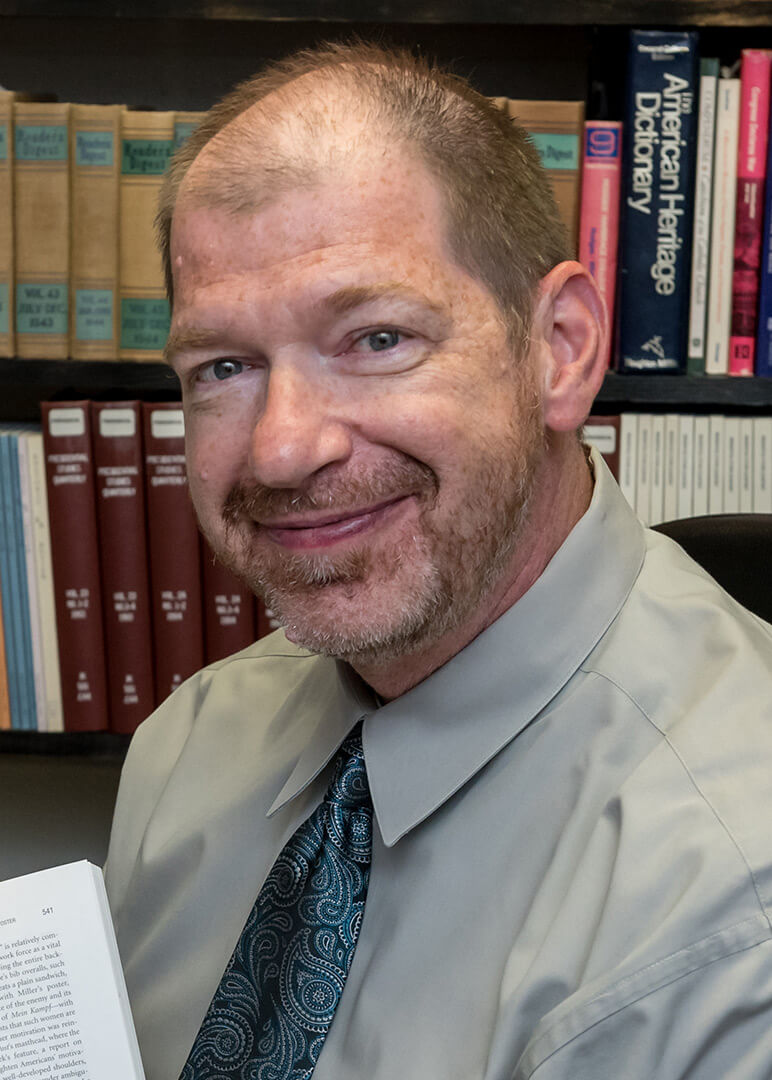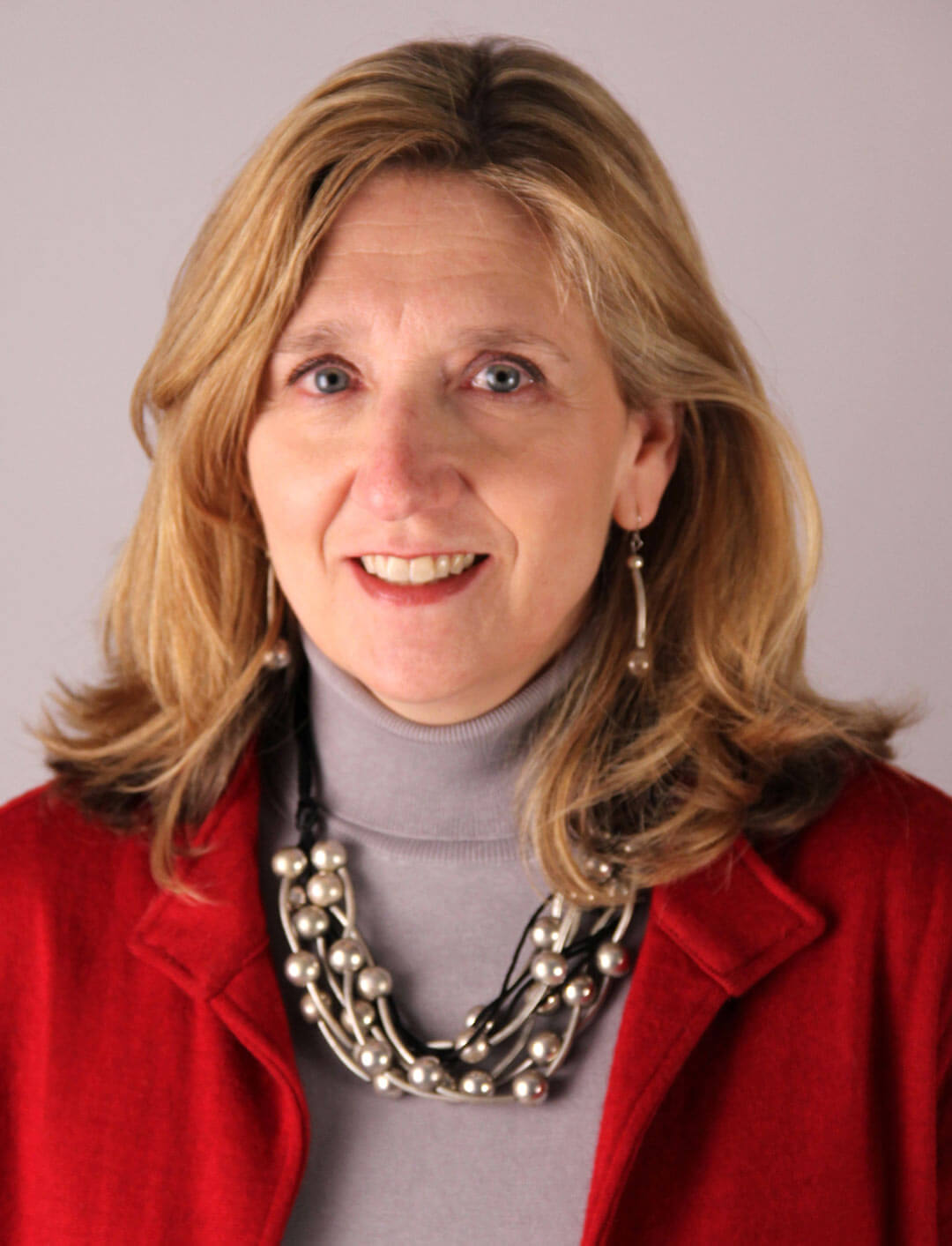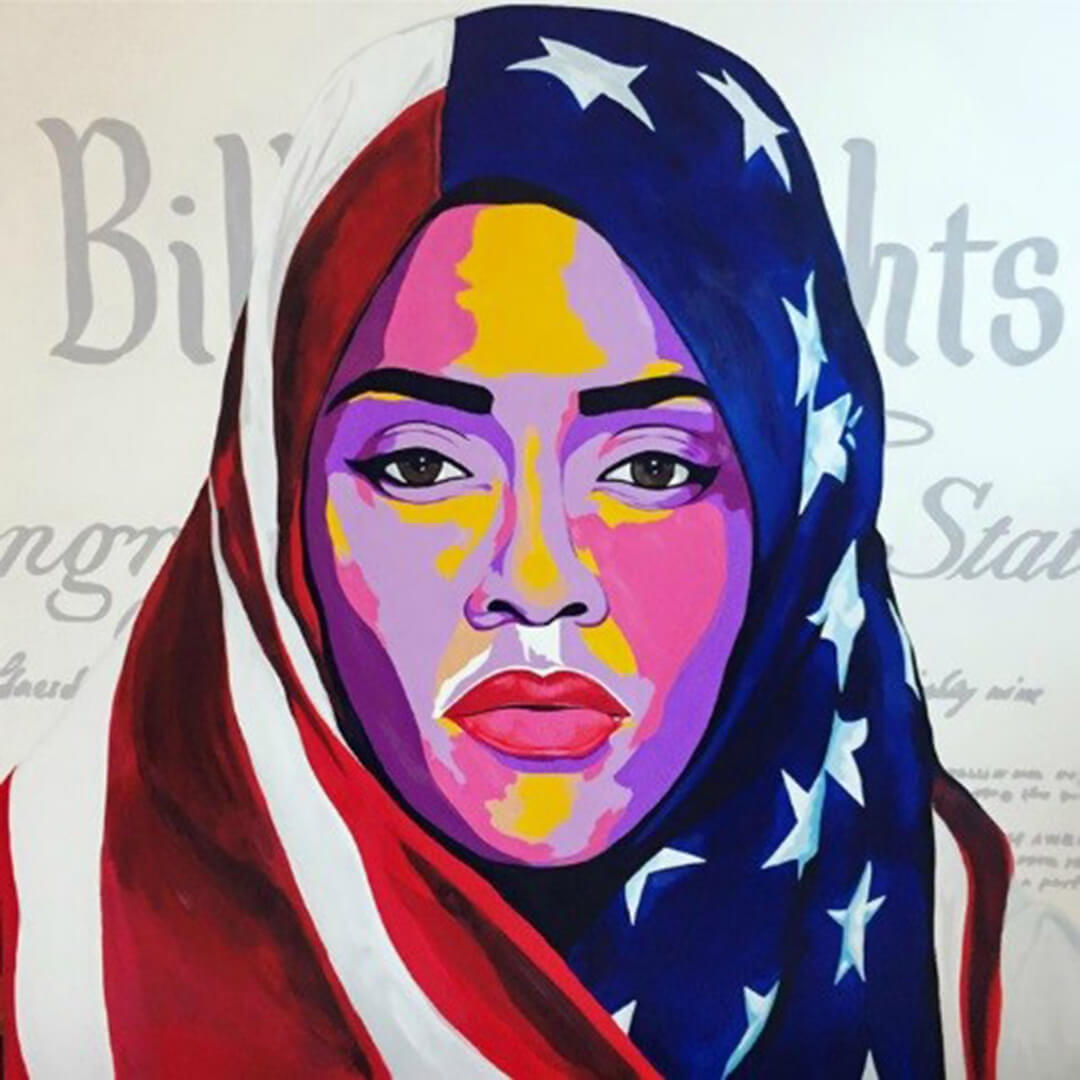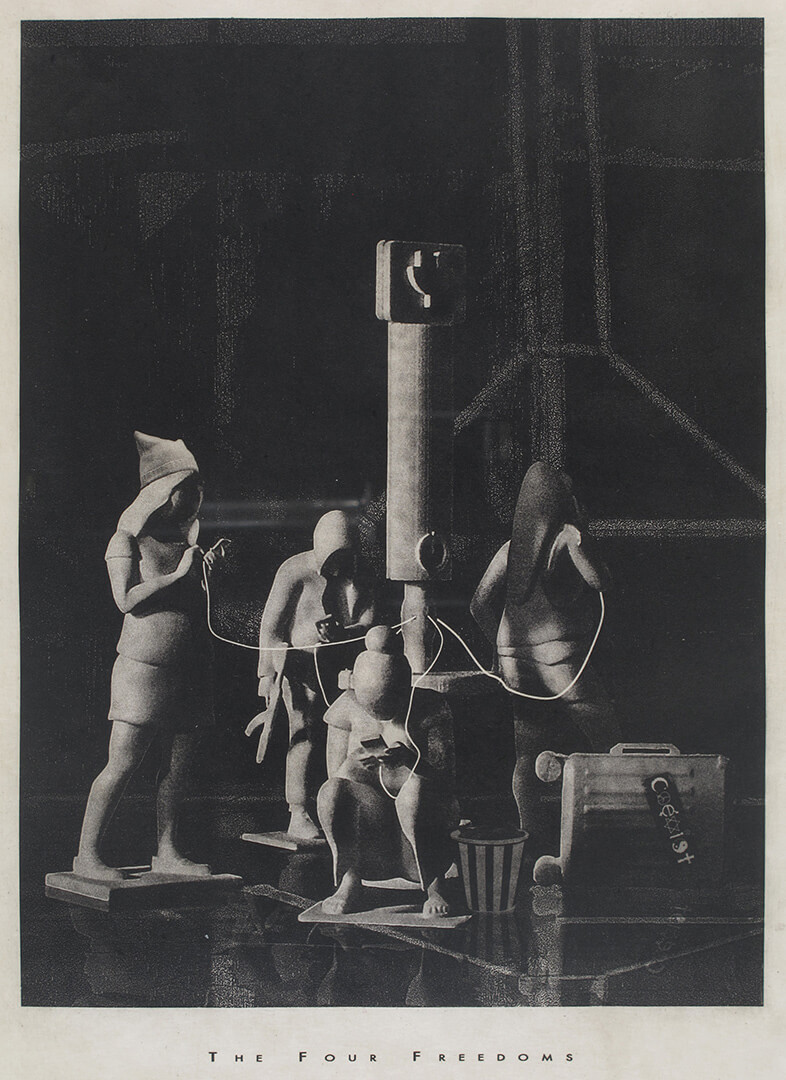- February 13, 2019
- By Carly Taylor ’19
In early 1941, when World War II had engulfed much of Europe, Africa and Asia, President Franklin Delano Roosevelt sought to inspire an anxious nation. In his State of the Union address to Congress, he outlined his vision for a safe world, founded on four essential human freedoms: freedom of speech, freedom of worship, freedom from want and freedom from fear.
The speech didn’t resonate, however, until painter-illustrator Norman Rockwell humanized the four freedoms in a series of wholesome images featured in the hugely popular Saturday Evening Post, including a family gathered around a Thanksgiving table and parents tucking their children into bed. They toured the nation, raising $133 million for war bonds.
Seventy-five years later, University of Maryland alumni James J. Kimble Ph.D. ‘01 and Margit Hotchkiss ’85 have helped put a modern spin on the series to reflect the changing perspectives of freedom. They and colleagues at the Norman Rockwell Museum in Stockbridge, Mass., developed the traveling exhibition, “Enduring Ideals: Rockwell, Roosevelt, and the Four Freedoms,” which opens today at the George Washington University Museum and runs until April 29.
“The freedoms themselves became part of our understanding of human rights, inspiring Gandhi and Mandela,” said Kimble, who co-curated the exhibit. “We’re at a time in our nation’s history when we’re as divided as we’ve ever been, but the Four Freedoms are something everyone can agree is a good idea.”
Kimble, who garnered expertise on the World War II home front through his communication studies at UMD, sought visuals that represent the freedoms throughout history.
The iconic illustrations by Rockwell are on display, as well as more contemporary images. In one (left), a Muslim woman wraps an American flag around her head, conveying a reconsideration of national identity. Another visual addresses increased connection between people around the globe in the digital age through portraying a group of people crowded around a charging station.
Hotchkiss, chief marketing officer at the Norman Rockwell Museum, is excited to share Rockwell’s works to new audiences. The museum has brought the exhibit to New York and Michigan, and it will appear in France and Texas later this year. Showcasing the artworks across the country and world can broaden our view of what these freedoms mean, she said.
“It helps us reflect and to hopefully be a kinder and more inclusive world,” Hotchkiss said.
Kimble hopes the exhibit can spark discussion for visitors.
“People should attend with someone who has different views, then have a cup of coffee together afterward,” Kimble said. “Engaging in conversation is something we’re not doing well right now, and I’m hoping this exhibit starts conversations.”
For more information, visit RockwellFourFreedoms.org.
